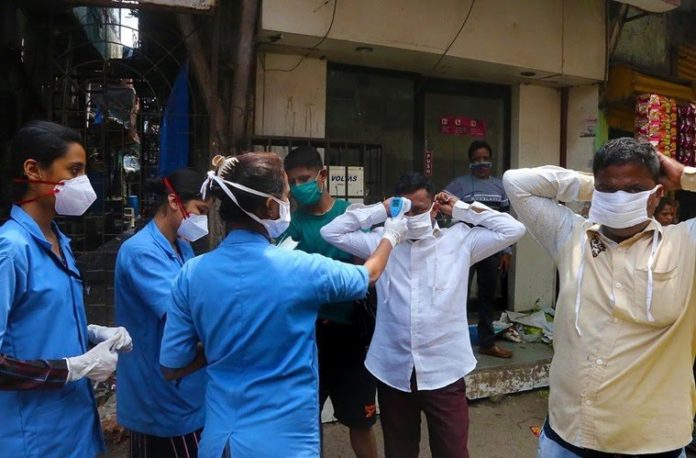While testing remains the first line of defence against Covid-19 until a vaccine becomes accessible to the masses, there is a need for fast, accurate and cost-effective tests that don’t require a lab for processing or any specialised equipment to ramp up detection of cases.
India, which has scaled up testing to a daily average of 10 lakh samples — a three fold rise from mid-July, is testing a host of new technologies and simpler ways to detect the novel coronavirus – from saliva, cough sounds and even breath. These tests will enable people to collect their own samples unlike the invasive and uncomfortable nasal or throat swabs that are used for RT-PCR tests.
These are new type of Covid-19 tests undergoing trials in India
Cough Against Covid
Mumbai-based Wadhwani Institute for Artificial Intelligence, with support from the Bill and Melinda Gates Foundation, is developing an AI-powered technology that can detect Covid 19 in cough sounds even in asymptomatic cases. The technology, which works on a basic smartphone, will require a user to record a cough sound and report the symptoms they are experiencing.
In a yet-to-be-peer-reviewed research paper, the study, conducted on 3,621 individuals across four states, demonstrated how solicited-cough sounds collected over the phone and analysed by the AI model had a detectable Covid-19 signature. For the study, each individual was required to cough, recite the numbers from one to ten and breath deeply.
To analyse the audio samples, the research team developed an end-to-end convolutional neural network (CNN)-based framework that ingests audio samples as spectrograms and directly predicts a binary classification label indicating the probability of the presence of Covid-19. When used as a screening layer before the RT-PCR test, the tool was found to improve the testing capacity of a healthcare system by 43 per cent, assuming a disease prevalence of 5 per cent.
Dr Rahul Panicker, Chief Research and Innovation Officer, said, “Testing capacity for Covid-19 has been a major challenge globally. This prompted us to think about how we could use AI to develop non-invasive Covid-19 testing that was affordable and accessible to a large population. We believe it will help healthcare and civic authorities expand testing and also focus their resources better, by filtering out patients with Covid-19 – like symptoms but without the infection.”
Researchers at Indian Institute of Science (IISc) are also working on a tool for Covid-19 diagnosis based on cough and speech sounds. IISc received nod from the Indian Council for Medical Research (ICMR) to collect respiratory sound data by tying up with hospitals treating Covid-19 patients in the last week of May.
The diagnosis tool will be released as a web/mobile application.
The user can record her/his voice samples for analysis and this will be used to predict whether or not the sample is similar to Covid-19 infection.
“As the major symptoms of the disease include respiratory problems, the project aims to detect and quantify the biomarkers of the disease in the acoustics of these sounds. The project requires participants to perform a recording of breathing sounds, cough sounds, sustained phonation of vowel sounds and a counting exercise,” PTI quoted a researcher as saying.
Israel-India working on saliva, breath, voice Covid-19 tests
Israel and India are conducting trials at Delhi’s Dr Ram Manohar Lohia hospital on four rapid tests that can detect the coronavirus in under a minute.
One technology is a voice test that uses artificial intelligence to identify changes in the patient’s voice. “It plays on the fact Covid attacks the respiratory system. One could even do the diagnosis through a cell phone,” a statement said.
A second technology involves a breath analyser test that requires the patient to blow into a tube. Using terahertz spectroscopy, the sample is deposited on a chip that detects the virus. NanoScent, the Israeli firm making the breath analyser test kits, said trials in Israel showed 85 per cent accuracy.
The two other technologies involve isothermal testing that enables identification of the coronavirus in a saliva sample and a test using polyamino acids that seeks to isolate proteins related to Covid-19. The US FDA has authorised at least five diagnostic tests that use saliva samples.
A small study conducted at AIIMS, New Delhi, on 50 Covid-19 positive patients has showed that gargled water samples may be a viable alternative to swab collection, which requires training and exposes healthcare workers, for detection of SARS-CoV2.
For the study, published in the Indian Journal of Medical Research, paired nasal and oropharyngeal swab and gargle samples were taken within 72 hours of their diagnosis. The samples were processed using RT-PCR test. The study showed that all gargle samples were positive and comparable to their corresponding swab samples irrespective of the symptoms and duration of illness.
Majority (72 per cent) of the patients reported moderate-to-severe discomfort with swab collection in comparison to 24 per cent reporting only mild discomfort with gargle collection,” the study said.
Schools in Canada have already started using ‘gargle and spit’ Covid-19 test for students. For the test, children gargle a saline solution for 30 seconds, which sweeps up tissues that may hold virus particles, and then spit into a tube.


